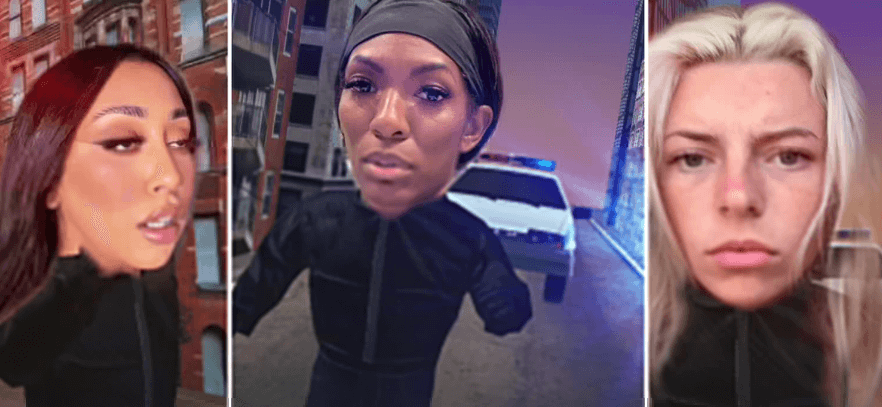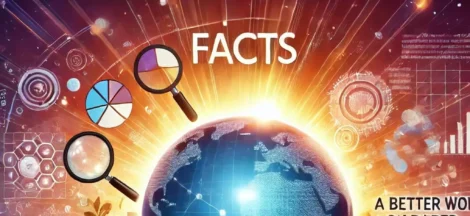Unveiling the paradoxical phenomenon that permeates our music industry: “It’s Cool When They Do It, It’s a Problem When I Do It.” We’ve all experienced it at some point – those lyrics in popular songs that raise eyebrows and ignite controversy. But why is it that certain artists seem to get away with problematic language and behavior while others face relentless criticism? In this blog post, we’ll delve into the world of music, exploring examples of misogynistic lyrics in male rap and the promotion of unhealthy behaviors. Together, let’s dissect these double standards in music criticism and challenge societal norms. Get ready for an eye-opening exploration of a complex issue!
Read also Pokemon Ecchi GBA Version
Define the ‘It’s Cool When They Do It, It’s a Problem When I Do It’ Phenomenon
Picture this: two artists release songs with similar themes and controversial lyrics. One is hailed as a genius, pushing boundaries and artistic expression to new heights. The other is vilified, accused of promoting harmful ideas and perpetuating negative stereotypes. It’s the classic case of “It’s Cool When They Do It, It’s a Problem When I Do It” phenomenon.
This perplexing double standard runs rampant in the music industry, where certain individuals are given a pass while others face intense scrutiny for their creative choices. What causes this glaring discrepancy? Is it based on gender, race, or societal expectations?
The issue becomes even more complicated when we consider that what may be deemed offensive by one person can be celebrated by another. Personal interpretation plays a significant role in how we perceive art. However, it seems that some artists are granted more leniency than others simply because of their status or popularity.
Perhaps part of the problem lies in our tendency to separate an artist from their work. We idolize musicians and often overlook problematic lyrics or behaviors if they produce catchy tunes or possess charismatic personalities.
But should fame absolve someone from accountability? Should we turn a blind eye when influential figures knowingly promote harmful ideologies through their music? These questions demand reflection and examination of our own biases as consumers and critics alike.
As listeners, we have the power to shape the narrative surrounding these double standards by actively challenging them – both within ourselves and within society at large. By holding all artists accountable for their words and actions regardless of their perceived status, we can foster an environment where genuine creativity thrives without reinforcing harmful norms.
So let us delve deeper into this fascinating phenomenon – unpacking its complexities while striving for fairness and equality across all musical genres. Together, let’s challenge the notion that it’s only cool when they do it – because music has the capacity to influence hearts and minds far beyond what meets the ear.
Examples of Problematic Lyrics in Popular Music
Popular music has always been a reflection of society, and sometimes that reflection isn’t pretty. It’s no secret that some lyrics can be controversial or offensive, perpetuating harmful stereotypes and promoting unhealthy behaviors. Let’s delve into a few examples of problematic lyrics in popular music.
One area where problematic lyrics often arise is in the realm of misogyny. Male rap artists have frequently come under fire for their use of derogatory language towards women. These lyrics objectify and demean women, reducing them to mere sexual objects rather than individuals deserving respect.
Another concern is the promotion of unhealthy behaviors through song lyrics. Some songs glamorize drug abuse, alcoholism, and other self-destructive habits. While it’s important to acknowledge artistic expression, it becomes problematic when these messages are uncritically celebrated without considering the real-life consequences they may have on impressionable listeners.
Double standards also play a role in analyzing problematic lyrics. Critics tend to hold different expectations for male and female artists regarding their content choices. Lyrics by female artists exploring sexuality or pushing boundaries are often criticized more harshly compared to similar themes expressed by their male counterparts.
It’s crucial to engage critically with popular music and question its impact on society as a whole. By examining problematic lyrics, we can encourage dialogue about larger issues such as gender inequality, substance abuse normalization, and societal double standards.
Misogynistic Language in Male Rap
The use of misogynistic language in male rap has long been a topic of controversy and criticism. While some argue that it is simply a reflection of the artist’s experiences or storytelling, others view it as perpetuating harmful stereotypes and promoting violence against women.
In many popular rap songs, women are frequently objectified and reduced to mere sexual objects. Lyrics often boast about conquests, degrade women based on their physical appearance, or advocate for non-consensual acts. These messages not only normalize disrespectful behavior towards women but also contribute to a culture that undermines their worth and agency.
Critics argue that this type of language reinforces gender inequality by perpetuating harmful myths about women being submissive or solely existing for male pleasure. It is important to recognize the impact these lyrics can have on young listeners who might internalize these attitudes towards women.
Moreover, the double standard in music criticism becomes apparent when comparing the scrutiny female artists face versus their male counterparts. Female rappers are often judged more harshly for explicit content or provocative imagery compared to male artists who receive less condemnation for similar themes in their music.
Addressing this issue requires a collective effort from both artists themselves and society as consumers of music. Artists should consider using their platform responsibly to challenge societal norms rather than contributing to negative narratives about women.
It is crucial for consumers of music to be discerning listeners and hold artists accountable for problematic lyrics. By supporting musicians who promote equality and respect through their work, we can encourage positive change within the industry.
While there may be no easy solution to completely eradicate misogyny from rap music, engaging in discussions around this issue helps raise awareness and encourages progress toward creating an inclusive space where all voices are valued equally.
Read also Biocetrism Debunked – Uncover the Shocking Facts
Promotion of Unhealthy Behaviors
When it comes to music, we often find ourselves singing along to catchy tunes without paying much attention to the lyrics. However, if we take a closer look, we’ll notice that some popular songs actually promote unhealthy behaviors. Whether it’s glorifying substance abuse or encouraging risky sexual behavior, these lyrics can have a significant impact on listeners.
One example is the glamorization of drug use in many hip-hop and rap songs. While artists may argue that they are simply depicting their own experiences or expressing artistic freedom, it’s important to consider the influence this has on impressionable minds. By normalizing drug use through their lyrics, these artists inadvertently encourage their fans to experiment with substances that can have serious consequences for mental and physical health.
Similarly, there are songs that romanticize and objectify women, promoting harmful stereotypes and contributing to misogyny in society. These lyrics perpetuate the idea that women are objects for men’s pleasure rather than individuals deserving of respect and equality. This not only reinforces toxic masculinity but also undermines efforts towards gender equality.
Moreover, certain songs promote violence as a means of resolving conflicts or gaining power. These messages can be dangerous because they normalize aggression instead of promoting peaceful resolutions or empathy towards others.
It is essential to recognize the power music holds over its listeners and hold artists accountable for their lyrical content. By raising awareness about problematic themes in popular music, we can encourage dialogue around these issues and push for change within the industry.
In conclusion,it’s crucial for both musicians and listeners alike to reflect on how certain song lyrics contribute to unhealthy behaviors and negative societal norms. As consumers of music, let’s be mindful about what messages we endorse by critically examining the content we listen to – after all “It’s Cool When They Do It” isn’t an excuse when it promotes harm!
Examining Double Standards in Music Criticism
When it comes to music, there seems to be a curious double standard in how certain artists are criticized or praised. While some musicians can get away with controversial lyrics and behavior without facing much backlash, others aren’t so lucky.
Take female artists, for example. They often face harsher criticism and scrutiny for their image and lyrical content compared to their male counterparts. If a female artist expresses her sexuality or uses provocative imagery in her music videos, she’s labeled as “attention-seeking” or “vulgar.” Yet male artists who do the same are hailed as edgy and boundary-pushing.
Moreover, when it comes to genre-specific criticism, rap music tends to face more intense scrutiny than other genres like rock or pop. Lyrics that contain misogynistic language or promote violence against women are rightfully condemned. However, it’s interesting that similar themes can be found in popular rock songs from the past without the same level of outrage.
It’s crucial to question why these double standards exist within music criticism. Is it rooted in societal biases? Or is there an underlying perception that certain genres should adhere to different moral standards?
Furthermore, we must consider how these double standards impact not only individual artists but also society at large. By holding different genders and genres to varying levels of accountability, we perpetuate harmful stereotypes and hinder progress towards true equality.
In order for our society to evolve beyond these double standards, we need a collective shift in how we consume and analyze music. It requires us all—critics included—to examine our own biases and challenge the norms that perpetuate inequality within the industry.
So let’s continue this dialogue about double standards in music criticism because understanding them is the first step toward creating a more inclusive and fair environment for all musicians regardless of gender or genre they represent
Read also Asan N’jie on his Wiki Page
FAQ
1. Are these double standards limited to just music?
No, the phenomenon of “It’s cool when they do it, it’s a problem when I do it” is not exclusive to the music industry. It can be observed in various aspects of our society, such as politics, sports, and even everyday interactions. However, since music has a significant influence on popular culture and shapes societal norms, it becomes crucial to analyze this issue within the context of the music we consume.
2. Why is there such a discrepancy in how we perceive certain behaviors?
The reasons for this discrepancy are multifaceted and deeply rooted in societal norms and biases. Often, our perceptions are influenced by factors like gender roles, power dynamics, and cultural expectations. These ingrained beliefs can lead us to overlook problematic lyrics or behaviors when they come from individuals who hold more privilege or social status.
3. Can’t artists argue that their controversial lyrics are just art or self-expression?
Artistic expression should be valued and protected; however, it does not exempt artists from criticism or accountability for harmful messages conveyed through their work. While some may argue that controversial lyrics are merely artistic choices or reflections of personal experiences, it is essential to question whether those choices perpetuate harm or reinforce damaging stereotypes.
4. How can we address this issue effectively?
Addressing this issue requires collective effort from both consumers and creators of music alike. As consumers, we need to be critical of the media we consume and recognize our own biases when evaluating different artists’ actions and messages in order to promote fairer judgments across all genres.
5. Can’t artists argue that their controversial lyrics reflect real-world issues?
While reflecting real-world issues can indeed be an intention behind controversial lyrics in songs (such as highlighting social injustices), there should still be a responsibility on part of the artist to ensure that these messages are presented responsibly without promoting harmful ideologies or glorifying negative behavior.
Conclusion
In this article, we have explored the phenomenon of ‘It’s Cool When They Do It, It’s a Problem When I Do It’ in popular music. We have seen how certain lyrics and themes can perpetuate misogyny and unhealthy behaviors, while also examining the double standards that exist in music criticism.
It is important to recognize that the influence of music goes beyond mere entertainment. Lyrics and messages conveyed through songs can shape our perceptions and attitudes towards various issues. As listeners, it is crucial for us to critically analyze the content we consume and hold artists accountable for their words.
While it is true that artists often use artistic expression as a means to share personal experiences or explore different perspectives, it should not serve as an excuse for promoting harmful ideologies or behaviors. The power dynamics at play within the industry need to be acknowledged and addressed so that all voices are given equal weight.
As consumers of music, we have the ability to demand change by supporting artists who prioritize inclusive language and positive messaging. By advocating for diversity in representation within the industry, we can contribute to creating a more inclusive musical landscape where problematic lyrics are challenged rather than celebrated.
Read also Xnxubd 2021 Frame Rate Android
Addressing ‘It’s Cool When They Do It, It’s a Problem When I Do It’ requires ongoing conversations around accountability, equality, and social responsibility within the realm of popular music. Let us strive toward a future where everyone feels empowered by music rather than marginalized by its influence.





 Need to know more about Naegleria?
Need to know more about Naegleria?